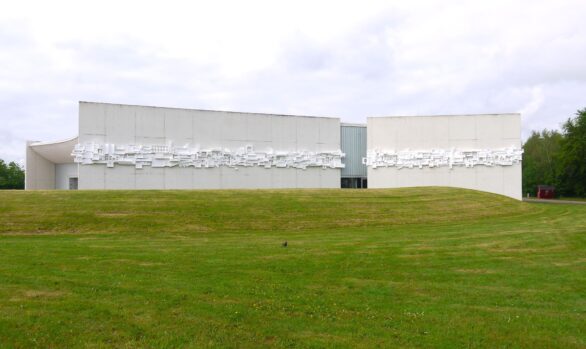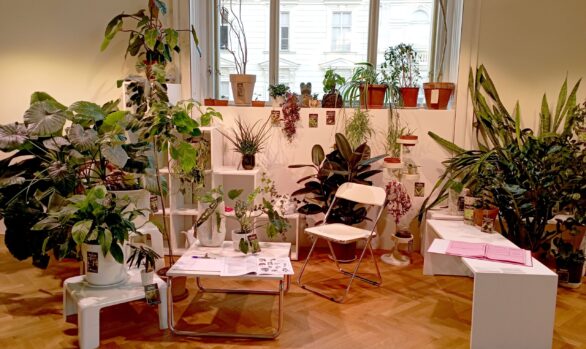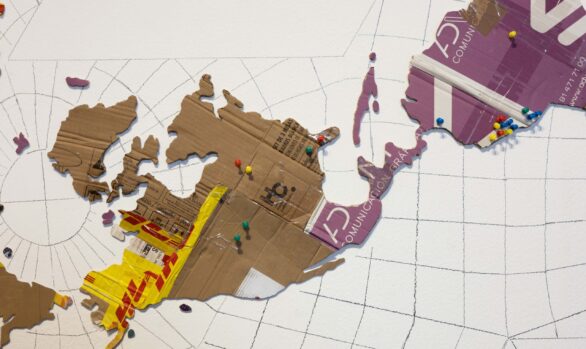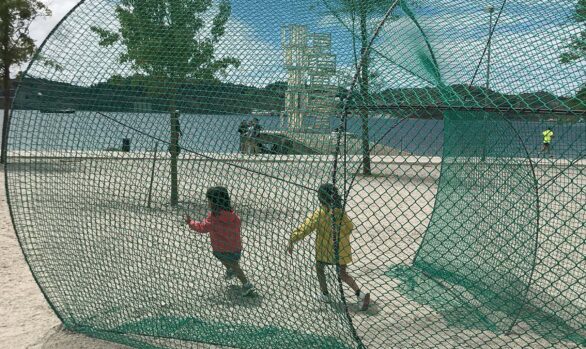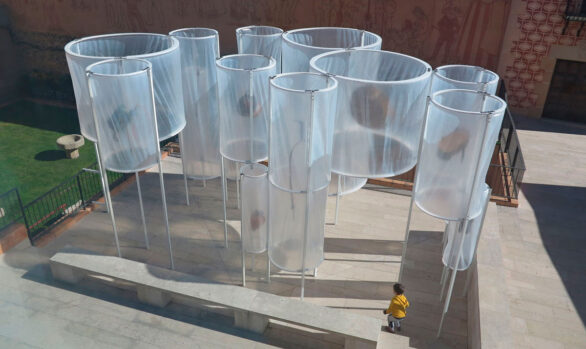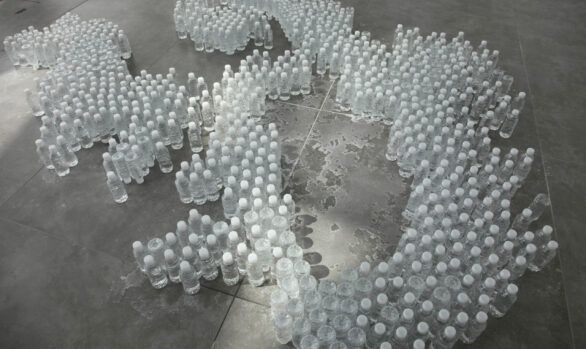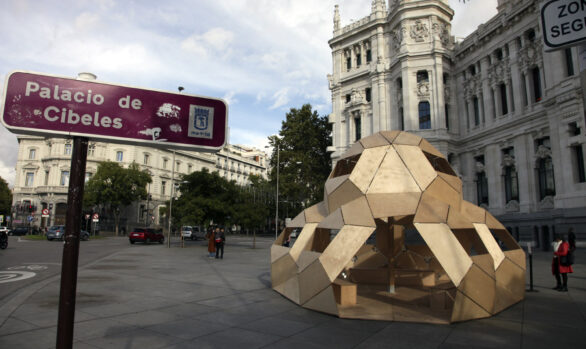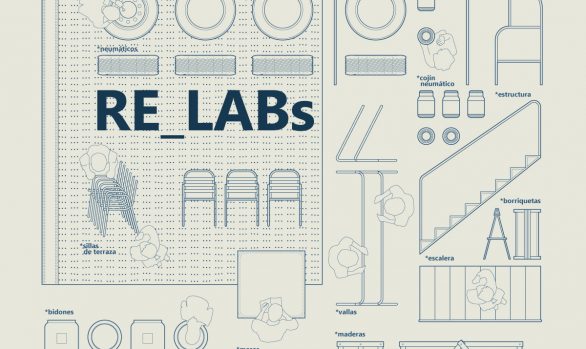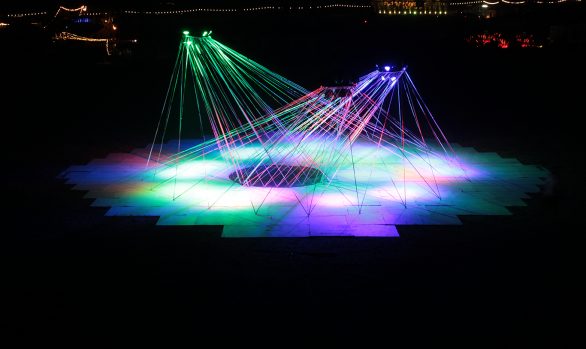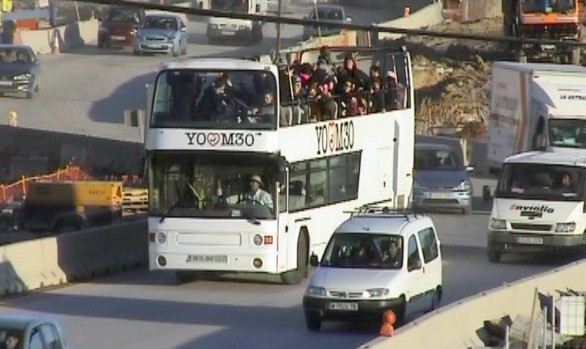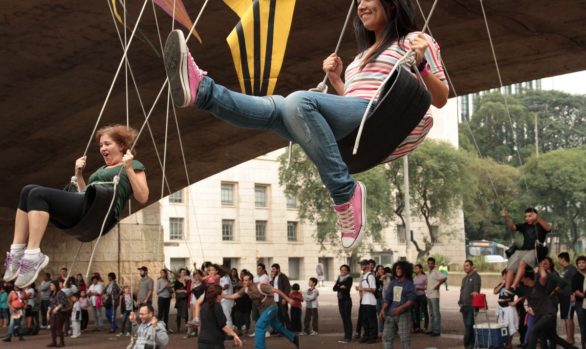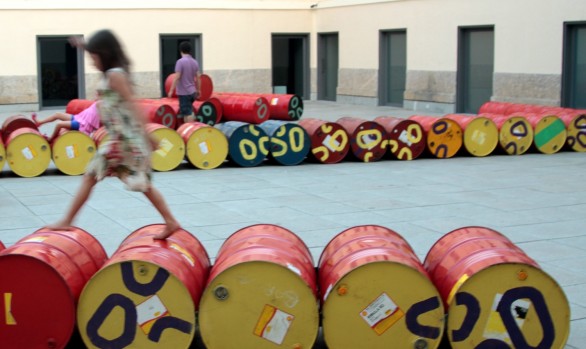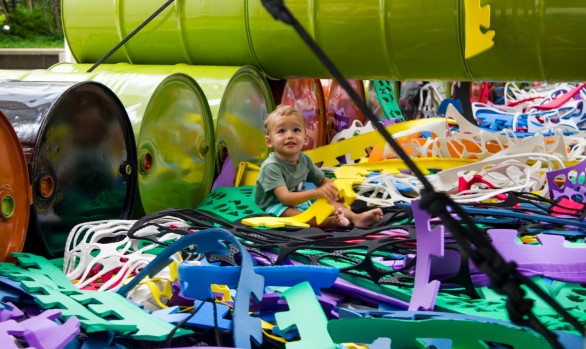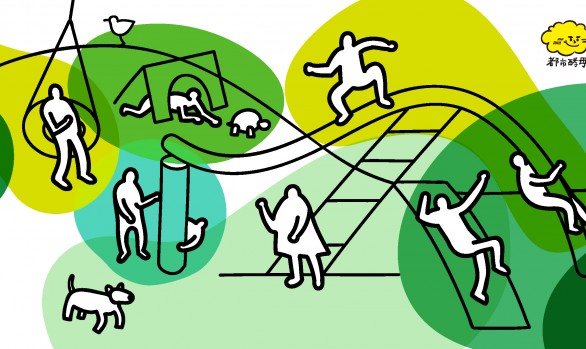The Waste room of modernity
Installation / ResearchInvited to the exhibition “Haushalten in den Meisterhäusern: Wie leben wir morgen gesund und wirtschaftlich?” (“Householding” in the Master houses: how we will live healthy and economically tomorrow?) the first exhibition of contemporary interventions happening at the houses that Gropius designed for the teachers of the Bauhaus in Dessau. It was open from June, 12th to August, 9th 2015.
Researching about the house we were invited to (the Dining Room of Georg Muche), we realized that the house had a buffer space between the kitchen and the dining room, that originally had a window to pass the dishes to the dining room. In that room, the service put the plates together before passing it to the guests. The home of the masters of modernity not only had service living in the dark basement, their service was hidden and unvisible from them. If we think about the service at Downton Abbey, contemporary to them (1926), at least they see each other.
Obviously, modernity was clean because someone else was dirty. Our founding fathers, the Bauhaus and its domesticity did not contemplate any relation with care work. The house was to be a machine for living and creating, alright. But it needed servants.
The installation we proposed crossed those two realities of cleanlines and dirtiness, work and discourse: in the service room, we exhibited some of the photos we took around the world of the waste pickers we have been working with. They were exhibited in the most familiar (and patronising) way. Meanwhile, in the living room, eight thermal printers were printer every twit with the typical hashtags of the contemporary ecological discourse: #Recycle, #Waste, #Efficiency, #Reuse, #Sustainable, #Growth, #Ecology, and not surprisingly the less times twitted #Consumption, which is for us the key word for understading our relation with the world today. 58 days printing every twit with those hashtags, from 10h to 17h CET: Around 15000 mts of thermal paper, 200,000 twits.
While some make ecology work, and invent new methods of caring and householding , some of us dedicate our time to produce discourse, as empty as usual.
__________
This is the curatorial text:
Waste is contemporary, not modern.
Indeed, economy consists today of the production, transport and consumption of waste.
Gropius never included a “waste room” in the meister houses- in his time
There was not as much waste as today. BUT; also the servants handled that.
Modernity was clean because someone else was dirty:
What Gropius included is a room where the servants remained unseen and invisible- the “buffer zone” between the dining room and the kitchen.
Contemporary household produces waste
Indeed, we all work now for the recycling industry, sorting the waste at home, saving work to the recycling industry, not any other but the biggest companies on earth: packaging, mining, steel, aluminium and paper industries are THE recycling industry.
We paid for it and then we have to give it back for free because is “good for the earth”
The massive swindle that consists in buying for overpriced waste, take it home and send it back into the industry is the ultimate exploitation of contemporary economy.
There are no logos for reusing or reducing. All of them ONLY ENCOURAGE to recycle;
there are some informing the material COULD be reused, which material the product is made of, some ask you to be clean and some other to dispose correctly, nothing else. The Pfand, the only useful reusing system existing is, more and more, taken care of by informal workers to work while we party.
Housekeeping and budgeting in the XXI century must include a new waste production and management culture, and that cannot forget the waste workers, who are the most delicate waste managers and the most thorough reusers. They are, indeed the only one proposing a culture of waste management that might help us reducing the CO emissions and having a happier life. Riding a bike, eating organic and being green makes you happier. “Recycling” (Sorting waste at home and putting them in the bins provided by the biggest companies in the world) is something that makes others happy.

